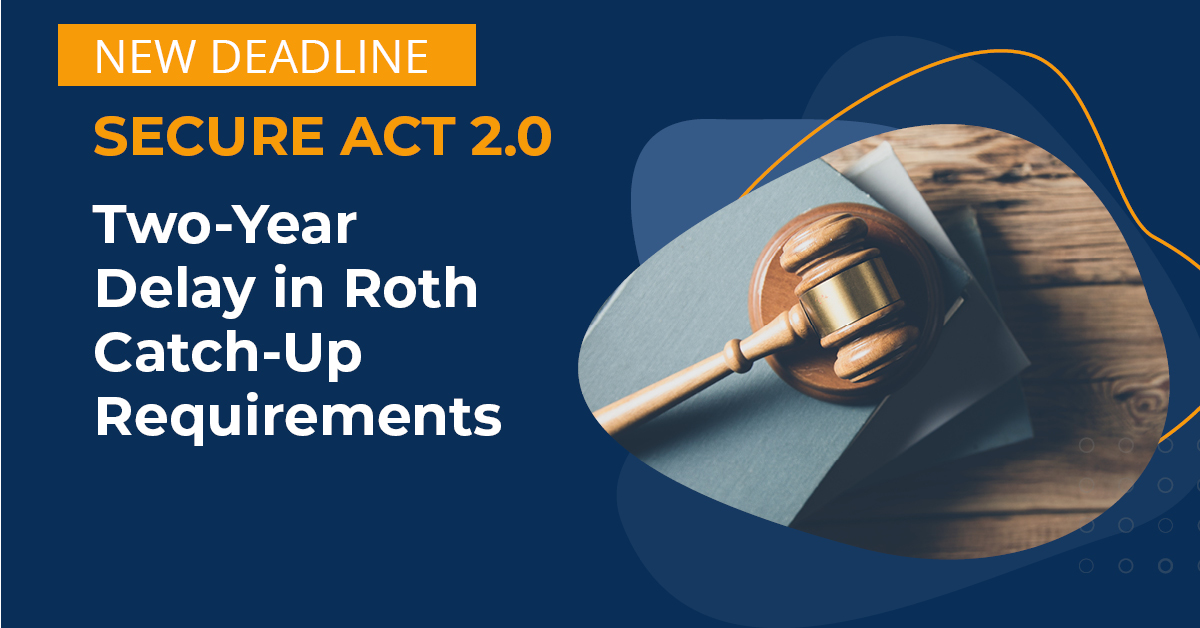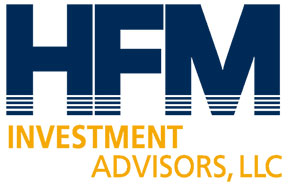
SECURE Act Update: Two-Year Delay in Roth Catch-Up Requirements
The Internal Revenue Service (IRS) has granted a two-year delay in the Roth catch-up requirements. This decision brings relief to retirement plan participants and sponsors who were facing looming compliance deadlines. Let’s delve into the details of this breaking news.
Key points to note:
- Catch-up contributions are available to plan participants over age 50, regardless of income, the catch-up contribution limit is $7,500 in 2023.
- Section 603 of SECURE 2.0 states that catch-up contributions for qualified retirement plans are subject to Roth tax treatment, except for participants with Social Security tax wages of $145,000 or less (indexed for inflation).
- The original implementation date was January 1, 2024 but has been extended to January 1, 2026, as per the IRS’s announcement. Notice 2023-62
- If your plan does not currently offer a Roth option, you should still prepare for this transition and consider adding the Roth option to your plan.
The Original Rule
As part of SECURE 2.0, employees age 50 or older with W-2 wages in excess of $145,000 in the prior year who were looking to maximize their retirement savings with catch-up contributions were required to treat their catch-up contributions as Roth contributions beginning in 2024. If the employee earns less than $145,000, they can choose either pre-tax or Roth contribution type.
Delay in Effective Date
On August 25th, the IRS granted a two-year delay in the provision’s effective date that mandates catch-up contributions must be Roth for those earning more than $145,000. Catch-up contributions can now be made on a pre-tax basis through 2025, regardless of income.
This delay in the effective date is to allow retirement plans and sponsors to smoothly transition and comply with the new policy. As per the SECURE 2.0 Act, section 603(c), the provisions of section 603 will apply to taxable years beginning after December 31st, 2023. The IRS considers the first two taxable years following this date as an administrative transition period. As a result, the new effective date for the requirement is projected to be January 1st, 2026.
It also addressed the technical error that would have eliminated all catch-up contributions beginning in 2024. Under the notice, catch-up contributions can continue to be made after 2023.
Impact on Retirement Planning
This delay comes after a mass amount of retirement industry feedback that implementing the change for all defined contribution plan sponsors would be administratively challenging to get done by the original deadline. The extension of the deadline for Roth catch-up contributions has been regarded as a positive step towards easing the burden on individuals and plan sponsors.
Roth Catch-Up Requirements was one of a number of several provisions on the horizon, learn more about the SECURE Act and how it may impact your plan in 2024.
856-232-2270
401kteam@hfmadvisors.com
102 West High Street Suite 200, Glassboro, New Jersey 08028
HFM Investment Advisors, LLC is a registered investment adviser. The information presented is for educational purposes only and does not intend to make an offer or solicitation for the sale or purchase of any specific securities, investments, or investment strategies. All investments involve risk and there can be no guarantee of any future performance of any investment. Be sure to first consult with a qualified financial advisor and/or tax professional before implementing any strategy discussed herein. Past performance is not indicative of future performance.
This information was developed as a general guide to educate plan sponsors and is not intended as authoritative guidance or tax/legal advice. Each plan has unique requirements, and you should consult your attorney or tax advisor for guidance on your specific situation.
©401(k) Marketing, LLC. All rights reserved. Proprietary and confidential. Do not copy or distribute outside original intent.
